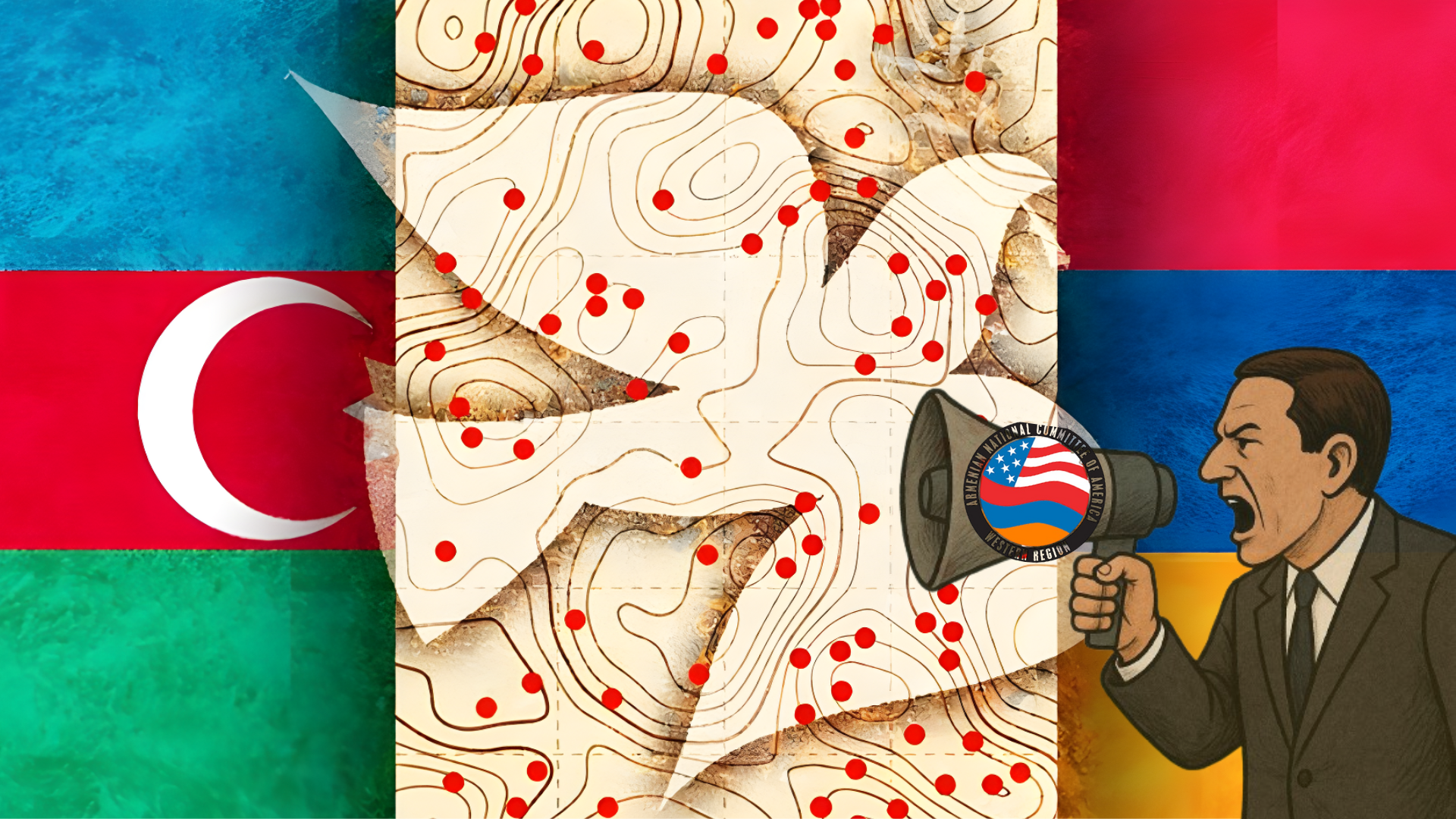As peace nears between Baku and Yerevan, lobbying noise grows louder

By all measures, the South Caucasus is standing at a historic moment. For the first time in decades, the prospects for a peace agreement between Azerbaijan and Armenia are within real reach. Constructive negotiations are bringing the two sides closer to ending years of hostility and building a framework for sustainable coexistence. Yet, just as diplomacy begins to show tangible results, familiar obstacles are re-emerging—this time in the halls of the US Congress.
During a session on May 21, US Secretary of State Marco Rubio addressed concerns about the region, noting, "There is a real danger of conflict, which we are trying to prevent. Our teams are actively working in that direction." Secretary Rubio's remarks, grounded in a balanced understanding of the region's complexities, reiterated the United States' commitment to peacebuilding efforts in the South Caucasus. Importantly, he acknowledged the challenges of dealing with nations that may not fully align with American governance models, but emphasized the need to pursue diplomacy in the service of national and global interests.
However, it was the question posed by Congressman Christopher Smith, co-chair of the Tom Lantos Human Rights Commission, that raised eyebrows. Smith accused Azerbaijan of committing genocide against Armenians and holding political prisoners, calling for increased pressure on Baku. While such language may resonate with certain domestic audiences, it reflects a broader strategy long deployed by the Armenian lobby: distorting facts to influence foreign policy in their favor.
This is not a new phenomenon. The Armenian lobby has historically leveraged influential political figures to frame Azerbaijan as the aggressor, particularly at moments when real peace is achievable. The timing is rarely coincidental. At a point when the two countries are engaged in difficult but productive dialogue, and when Azerbaijan has repeatedly reiterated its readiness for a comprehensive peace treaty, such inflammatory statements appear aimed less at protecting human rights and more at derailing diplomatic momentum.
The core irony is striking: while Azerbaijan is actively involved in regional integration and is taking the lead on initiatives related to energy, transport, and humanitarian reconstruction—both globally and within the region—the narrative put forth by lobby-backed figures completely overlooks this context. By painting Azerbaijan as a threat and invoking the specter of war, lobbying actors risk creating the very instability they claim to fear.
How about Armenia? How safe and stable is the current political climate in the country? Let us look:
A few days ago, signs of a political crisis were also observed in Armenia. The struggle for power in Armenia is gradually entering a new and more intense phase. Thus, the MPs who were recently expelled from the ruling "Civil Contract" party—Hakob Aslanyan and Hovik Aghazaryan—have nominated Edmon Marukyan for the post of Prime Minister of Armenia. Marukyan is a former comrade-in-arms of Pashinyan who resigned from his position as special ambassador last year.
It should be noted that Marukyan announced his resignation as special ambassador in protest against the government's "peace strategy" with Azerbaijan, and soon formed a new party. He is known for his relatively tough stance toward Azerbaijan. There are also allegations that Marukyan is pro-Russian. Interestingly, Marukyan, who is partially considered a representative of the "soft opposition," has emerged amid the declining influence of the traditional radical opposition in the country. By the way, among the information received is that he sought support for the prime ministership from forces connected to Russia, particularly the Kocharyan-Sargsyan pair.
Clearly, Armenia's internal politics do not concern Azerbaijan, but the key issue here is a rejection of the official demands from Baku, adjustments to the constitution, and commitment to the peace agenda. Unfortunately, no one can assure that a new political force won’t create the possibility of another war between the two countries during a time when the demands remain unmet and a peace treaty has not been signed.
Moreover, the suggestion that war is imminent has been a recurring tactic used by lobbying forces, often without a credible basis. These claims are not only disconnected from the current diplomatic landscape but also serve to confuse international audiences and policymakers. One must ask: whose interests are truly being served by this narrative? Because it increasingly seems that these voices speak more for lobby interests than for the state of Armenia itself.
Indeed, this form of political pressure might have value if used constructively—to encourage both sides toward reconciliation, to support civil society on both sides of the border, or to strengthen confidence-building measures. But when used selectively and directed overwhelmingly at one party, it loses legitimacy and undermines the larger goals of peace.
Azerbaijan, for its part, has not shied away from scrutiny. For its part, it has consistently expressed its firm commitment to achieving peace and has communicated this position clearly on every international platform. Its calls for peace are not performative—they are substantiated by actions, from rebuilding formerly occupied territories with inclusive development projects to proposing mutual recognition of territorial integrity and sovereignty.
At this pivotal moment, the international community—especially responsible political actors in Washington and Brussels—must discern between advocacy rooted in reconciliation and lobbying that thrives on prolonging division. The future of the South Caucasus depends not on outdated narratives and selective indignation, but on pragmatic, forward-looking diplomacy.
Azerbaijan is ready for peace. But peace requires partners, not provocateurs.
Here we are to serve you with news right now. It does not cost much, but worth your attention.
Choose to support open, independent, quality journalism and subscribe on a monthly basis.
By subscribing to our online newspaper, you can have full digital access to all news, analysis, and much more.
You can also follow AzerNEWS on Twitter @AzerNewsAz or Facebook @AzerNewsNewspaper
Thank you!

